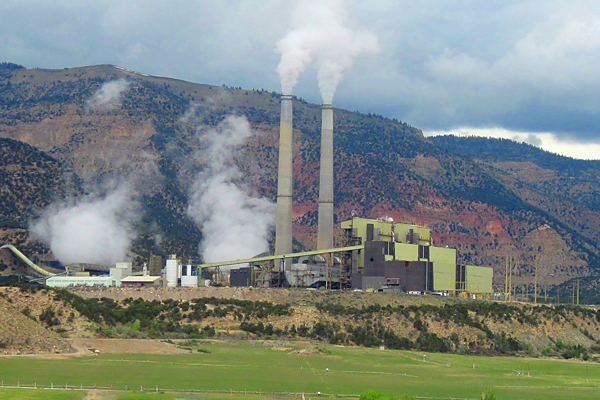
Fighting Environmental Disaster, from Utah to Oklahoma
By Richard Webster
Staff Attorney, Environmental Enforcement Project
As both our site and the Salt Lake City Tribune reported, Public Justice filed a suit in March, on behalf of HEAL Utah and the Sierra Club, to ensure the cleanup of millions of tons of toxic coal ash waste at a central Utah power plant following decades of mismanagement. The suit came after an October 2015 letter asking PacifiCorp, which owns the site, to address a litany of problems that have resulted in contaminated land and water at the Huntington coal-burning power plant.
As we noted in our complaint, PacifiCorp’s mismanagement in handling, transporting and disposing of the coal-ash waste has “caused extensive contamination of local ground and/or surface waters, which may present an imminent and substantial endangerment to health and the environment.”
Perhaps most egregious, the suit alleges that one of the plant’s tactics for skirting its responsibilities under the Clean Water Act was the creation of a “fake farm” adjacent to the plant, where alfalfa and other crops are irrigated as a means of disposing of the plant’s wastewater. Perhaps reflecting Pacificorp’s own view of the toxic risks, these crops are not sold, but are instead dumped back on the site.
Shortly after our suit was filed, PacifiCorp (showing just how deeply in denial the company was about the problem) filed a motion to dismiss it, stating that because the State of Utah was going to issue a permit to allow ongoing pollution at the site, the federal court need not get involved. Yesterday, Judge Robert J. Shelby rejected that idea, dismissing the company’s motion in a ruling from the bench. He found that Congress had given a statutory right to sue and that there was no reason for the court to decline jurisdiction over the case. And, in a sign that he wants to see the case move forward as soon as possible, he also asked us to agree to a scheduling order with PacifiCorp within 14 days.
That’s not only a great start in the case; it also bodes well for our Oklahoma earthquake case, in which a similar motion to dismiss is pending in our ongoing efforts to curb oil and gas fracking that has unleashed a series of progressively stronger quakes across the state. We intend to notify the judge in that case of this decision, which clearly shows that abstention doctrines rarely apply to cases involving the Resource Conservation & Recovery Act (RCRA).
Public Justice’s co-counsel on the Huntington case are John Barth of Hygiene, Colo. and Charles R. Dubuc of Western Resource Advocates in Salt Lake City, Utah.


